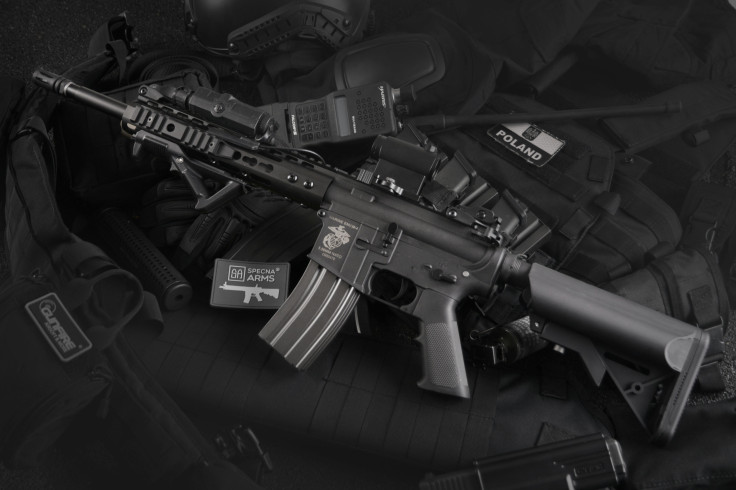
Law enforcement in Mexico and the United States are reporting a significant decrease in firearm seizures along the U.S.-Mexico border in recent months.
Since Oct. 1—the start of fiscal year 2025 and the beginning of Mexican President Claudia Sheinbaum's administration—U.S. Customs and Border Protection (CBP) has seized 437 firearms headed to Mexico. That marks a nearly 61% drop compared to the same period in fiscal year 2024, when agents stopped 1,110 firearms from crossing south.
CBP data shows most seizures occur in Texas, where cartels and arms traffickers are mostly active. The Laredo Field Office has confiscated 339 guns, rifles and explosives since Oct. 1. By comparison, Tucson agents have seized 82 firearms, while San Diego authorities have recovered five.
As Border Report noted, firearms moving south are typically purchased by straw buyers in the U.S., then smuggled across the border to supply criminal groups. Most firearms confiscated (62%) are hand guns, while 161 were large firearms.
Curbing the flow of U.S.-sourced weapons has emerged as a key priority for President Sheinbaum and former President Donald Trump, who has threatened Mexico with tariffs and other forms of diplomatic and legal pressure.
Earlier this month, Mexico's Security Minister Omar García Harfuch credited a new joint task force—Operación Frontera Norte—with improvements in border security.
Between February and May, Mexican authorities arrested more than 3,000 people, seized over 2,000 firearms, and confiscated 30 tons of drugs, according to Harfuch. He said 75% of the weapons recovered during that period were manufactured in the United States—a figure also acknowledged by U.S. officials.
"The U.S. Bureau of Alcohol, Tobacco, Firearms and Explosives confirmed that, since 2019, Mexico has requested the tracing of weapons seized from organized crime," García Harfuch said at a news conference.
Lawsuits and cross-border tensions
The decline in gun seizures coincides with heightened legal action and diplomatic scrutiny on both sides of the border.
Earlier this year, Sheinbaum threatened to expand lawsuits against U.S. gun manufacturers if the United States were to designate Mexican drug cartels as foreign terrorist organizations—a move implemented by the Trump administration in February.
In the AFT report referenced by both Harfuch and Sheinbaum, U.S. authorities found that most firearms trafficked into Mexico originate from Arizona, California, New Mexico and Texas. Northern Mexican states including Sonora, Baja California, Chihuahua, Nuevo León and Tamaulipas are the primary destinations.
Mexico previously filed a $10 billion lawsuit against six U.S.-based gun manufacturers, accusing them of enabling cartel violence. A U.S. federal judge dismissed the suit in August 2023, ruling that the companies' ties to Massachusetts—where the case was filed—were insufficient for jurisdiction.
Despite the setback, Sheinbaum has continued to criticize U.S. gunmakers. "If there's an alliance with cartels, it's in the gun shops selling high-powered weapons to these groups," she said in February.
© 2025 Latin Times. All rights reserved. Do not reproduce without permission.







